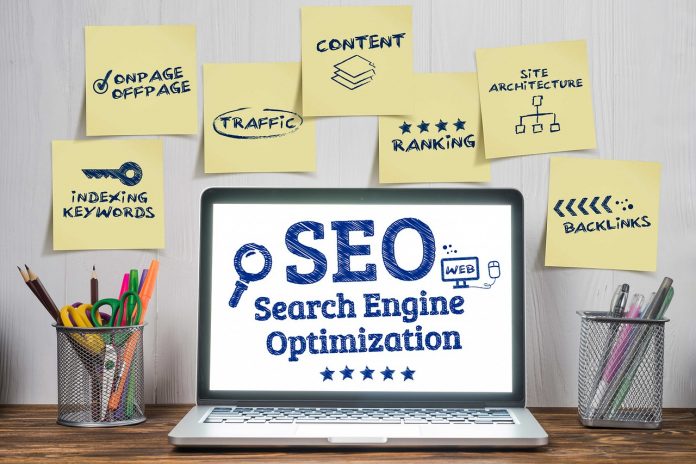There are 200 known Google ranking factors. The most important factors are related to the URL, inbound links, meta tags, the purpose of a keyword, how your content is structured, how fast your page loads, and many technical SEO specifications, which vary in importance on the basis of the subject.
More than 3.5 billion searches are completed every day on Google, a company that has over 85% of the desktop search engine market share.
To build prioritizing your SEO efforts easier for 2019, we’ve shared eight of the most beneficial ranking factors for you below.
1. Website Architecture
There are factors that put more than this effect on your Google ranking, but website architecture is the first thing you should get right especially when creating or recreating your website. By organizing your website into sub-directories, and having the clear text strings (or “slug”) at the end of each URL, it will be very easy for Google to understand who you are and what topics you want to take authority on.. (We will talk more about topics in just one minute)
For example, if you want to launch a blog on gardening – and specially planning to publish content about production, water, and pests – it is your interest to arrange your content into those three sub-directories.
2. Domain Security
Did you ever focus on “https” in the URLs of many websites? This is how Google spots protected websites from non-secure ones. Hint: You want your site to be safe.
HTTP means Hyper Text Transfer Protocol — a virtual procedure that transfers information from a website to the person’s browser. HTTPS is a secure version of this practice, and it tells Google that the information it’s showing is safe to the searcher. The “S,” as you’ve likely guessed till now, means “secure.”
To secure your website domain, you will need an SSL certificate.
3. Inbound Links
Inbound links, also known as “backlinks”, are all hyperlinks that come back to your page from anywhere on the Internet. They can make a major difference where you rank – even what number page your website rank on.
Why are these links important to your Google ranking? You do not rely on these referral sources for all your traffic, so why does Google care about your links? Inbound links to other websites tell Google that people trust what you have to say – enough to link it to on their own websites. The trust in Google’s eyesight is huge, and the more resources that are reliable for you to link to, the more impact your rankings are on your ranking of inbound links.
If you are only linking to your blog post with another link to your blog post, then inbound links do not work the same way. The effect of these backlinks almost completely comes from outside domains.
For this cause, “link building” has turned into an important (but delicate) process for gaining backlinks from other publishers. Some publishers, who have only one authorized authority, agree to trade backlinks from each other. Others write down a visitor post on this publisher’s website and link back to themselves.
4. Subject Authority
Topics are your bread and butter for Google rankings – they help you build a foundation for the page authority that you will need to rank higher for the long-term. In the simplest form, topics mean: the more content you will publish on a particular topic, the higher piece of content related to that topic will rank in Google’s SERPs.
Remember the gardening example we shared from the first ranking factor, above? Let’s say that this website contains about 20 articles about garden pests. So far, Google knows that this website is possibly an authority on the prevention of pest.
Therefore the website has a much better chance of ranking higher for a blog post about plant-friendly pesticides than it would for an article on, say, Google’s ranking factors — although if this article is keyword-optimized and astonishingly well written.
5. Keyword Intentions
Things may be more important in the long run than individual keywords, but this does not mean that keywords are not yet a ranking factor. In fact, when done right, keyword optimization is one of the most important factors that you can address in the SEO strategy of your website.
The earliest iteration of Google purely looked for the most samples of a keyword, phrased verbatim, in a webpage or blog post. This was recognized as “exact match.”
Today, “exact match” means something way different, and the website that carries the most instances of a keyword does not rank the highest for that keyword. Rather, it is the website that finest matches the aim behind that keyword.
Let’s once again consider our gardening example. If this website wants to rank for the keyword, “best organic pesticides,” it would not rank fine by simply adding this three-word phrase quite a few times throughout the article.
Instead, it should contain the keyword at least once, backed by real examples of organic pesticides, their ingredients, where you can purchase them, why they are so extremely rated, and possibly even what creates these pesticides organic.
Because this is the information visitors are looking for when they type their search term, websites that serve it to them will get more engagement by website visitors. Google then interprets this enlarged engagement as a good answer to the reader’s question, ranking the URL superior as a result.
6. Material structure
It is not enough just giving the information to the visitors on your website, which they are looking for. Since more websites give good answers to visitors, how that answer is prepared becomes a major reason when ranking content under more competitive keywords.
Different types of headers and sub-headers are included to make the answer easier for digesting and understanding a person in good material structure. This can include bullet points, numbered lists, helpful illustrations, and clearly cited research – they all help readers keep your content engaged.
The more a reader is associated with your content, the longer they stay on your website – which is known as their “session duration”, another relevant Google ranking factor that results in good content creation.
7. Meta Tags
A Meta tag appears to be something that is best for programmers, but Meta Tags are the simplest and often unused aspects of your content management system (CMS). They also do Lynchpin SEO maneuvers to rank well in Google results.
Meta tags help Google identify the specific purpose of a page, and what role it plays for each component topic and goal keyword on that page. There are several types of Meta Tags that must be filled in either the targeted keyword or description related to that keyword:
a. Title tag
The Title tag is usually the title of your article, which is shown in the HTML of that article. This helps Google create the blue, clickable title you see on the SERP itself.
Title tags are helpful for non-article web pages that do not contain natural, article-style titles, which can describe themselves. In these cases, you can go to the HTML of the webpage and add a keyword-optimized title tag which provides the same purpose as an article title.
b. Image Alt Text
Google cannot crawl or “read” the text in an image, just as it read the text. And it’s a shame because images can help blog posts and web pages rank very well in organic search results. In order to help Google to read images, content creators are encouraged to give their images an Alt Text (or “alt tag”), which best describes the image in the context of the webpage, on which the image is published.
c. Meta Description
The Meta description of a URL is a short string of text that appears on Google’s SERPs under each blue link, which summarizes the content inside. Meta descriptions do not include specific keywords, but there is an important box to be clamped in close by Google. Most CMS has a dedicated area where you can populate your Meta Descriptions.
8. Page speed
Page Speed means that how fast your webpage loads when a searcher clicks on Google search result. How many on-page factors contribute to loading your page, but in general – the faster the website is, the more it can rank on Google ranking index.
In general, pages that load in less than three seconds, are considered sufficiently fast for their visitors. However, it may vary depending on the purpose of the website and its type of visitors. For example, e-commerce websites are encouraged to be slightly faster – according to Google loading in two seconds completely.
Different types of fonts and sizes can reduce your site to a lesser extent, but the biggest reason for slow page speed is uncompressed images.
On the page, websites with a lot of heavy, complex type media can take more time to load the website, and thus can reduce the page speed on your website. Sometimes it is difficult to avoid, but the one thing you can control is the file size of each image on the page. To compress your images before uploading your CMS you can use websites like Compressor.io or compress images in bulk, tinypng.com





























